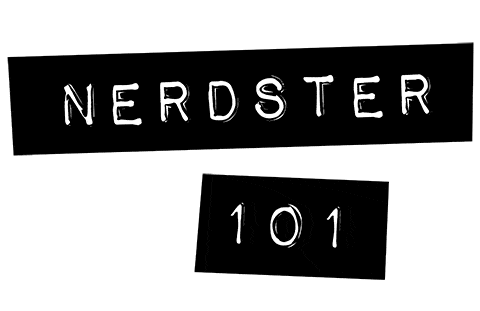Introduction
This comprehensive summary dives into Émile Zola’s groundbreaking novel, Germinal, analyzing its plot, characters, and prevalent themes. Providing insight into the harsh realities of 19th-century French miners, we unravel the social commentaries and impactful messages that render this novel a timeless critique of societal disparities and labour exploitation.
…a single word of anger would have led him to reveal his great grief, which was thus restrained and silenced”
– Émile Zola, Germinal
Book Information
- Title: Germinal
- Author: Émile Zola
- Genre: Historical Fiction
- Publication Year: 1885
Brief Overview
Germinal explores the hardship and oppression experienced by coal miners in northern France in the mid-19th century, with a particular focus on class struggle and revolutionary fervour.
Background
Author’s Background
Émile Zola, a prominent French novelist, was a figurehead of the literary school of naturalism. His work often spotlighted societal issues and the plight of the working class. Germinal is a part of his 20-volume series Les Rougon-Macquart.
Publication Context
Published during a period of industrial growth and social unrest in France, Germinal starkly illustrated the societal disparities of the era. It is a significant work in Zola’s Les Rougon-Macquart series, which explores the life of a fictional family under the Second French Empire.
Character Summary
Main Characters
- Étienne Lantier: The protagonist, an outsider and idealist who dreams of a better world for miners.
- Catherine Maheu: A young miner with whom Étienne becomes romantically involved.
- Maheu Family: Representative of the typical miner family, suffering from exploitation and poverty.
Character Development
Étienne evolves from a mere observer to a passionate leader of the miners’ strike. Catherine’s character represents the exploitation and the harsh reality of the working class, while the Maheu family’s trials embody the broader struggles of the miners.
Plot Summary
Overview
Germinal chronicles the lives of coal miners in Montsou, their exploitation by mine owners, and their eventual strike for better conditions, which ends tragically.
Setting
The novel is set in the coal mining town of Montsou, in northern France, during the 1860s.
Themes and Motifs
Key Themes
- Class struggle: The novel vividly portrays the conflict between the oppressed working class and the exploiting bourgeoisie.
- Humanity versus Industry: The mechanization of labor and its dehumanizing effects are recurrent themes in the novel.
Motifs and Symbols
- Mine (“Le Voreux”): The coal mine is a symbol of the beast that consumes human lives, reflecting the destructive nature of industrial capitalism.
Takeaway Morals
Morals
The book presents a moral imperative for justice and fairness, emphasizing the humanity and dignity of workers.
Application
Germinal’s call for social justice remains relevant today as we continue to grapple with issues of economic disparity and labor rights.
Analysis
Literary Devices
Zola’s use of naturalism emphasizes the grim realities of the miners’ lives. Symbolism is used to amplify the themes of oppression and struggle.
Style and Tone
Zola’s writing style is descriptive and vivid, creating a stark portrayal of 19th-century mining life. The tone is serious and dramatic, underscoring the plight of the working class.
Critical Reception
Initial Reception
Initially, Germinal received mixed reviews due to its graphic depiction of the working class’s struggles and suffering. However, it eventually gained recognition for its powerful social commentary.
Current Standing
Today, Germinal is regarded as one of Zola’s greatest works and a defining novel of French literature. It remains a poignant critique of social inequality.
Personal Response
Personal Opinion
Reading Germinal was like riding a roller coaster through the dark caverns of the human condition – scary yet enlightening. Trust me, it’s a ‘coal’ story! (See what I did there?)
Recommendation
If you appreciate historical fiction with profound social commentary, Germinal should be on your bookshelf. It’s not a light read, but it’s a necessary one.
About the Author
Biography
Émile Zola (1840–1902) was a prominent French novelist and journalist, known for his robust depictions of the underclasses and his fervent call for social change.
Literary Career
Zola is best known for his series Les Rougon-Macquart. His bold exploration of societal issues made him an influential figure in the literary school of naturalism.
Book Details
Publication Details
- Original Publication Year: 1885
- Publisher: G. Charpentier
Structural Details
- Number of Pages: Approximately 592 pages, depending on the edition.
Conclusion
Summary
With its stark depiction of the hardships faced by 19th-century French miners, Germinal remains a powerful critique of societal disparities. Its themes of class struggle and the human cost of industrial progress resonate to this day.
Final Thoughts
While Germinal might not be your typical beach read, its gritty realism and profound message make it an unforgettable literary journey.
-
Père Goriot, by Honoré de Balzac – Quick Book Summary
-
The Wind-Up Bird Chronicle, by Haruki Murakami – Quick Book Summary
-
The Sorrows of Young Werther”, by Johann Wolfgang von Goethe – Quick Book Summary
-
A Room of One’s Own, by Virginia Woolf – Quick Book Summary
